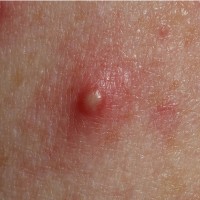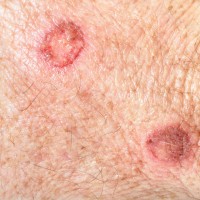
Prevent or Get Rid of Acne Scars
Acne is usually only a temporary problem, but it can sometimes leave behind an unwanted reminder of your spots even after your acne treatments at the London clinic have worked. Some spots can leave scars on your skin that may look like small holes and depressions or uneven, rolling areas of skin.
Preventing Acne Scars from Forming
Scarring is particularly likely to happen when you have severe acne where the spots develop into cysts or nodules that can burst and damage the surrounding skin. However, any type of spot can leave a scar, particularly if you squeeze or pick at it. This means that you can reduce the chances of scarring by resisting the urge to touch your spots and preventing any clothing or other objects from rubbing on them. However, even when you are taking care of your skin, you might not be able to prevent some scars from forming anyway.
If your acne is leaving scars on your skin, it is a good idea to consult a dermatologist at the London clinic who will be able to provide prescription acne treatments to get rid of your spots. Treating the spots is the most effective way to prevent any additional scars from forming. However, you may have to be patient while you wait for the acne treatment to work.
Get Rid of Acne Scars
Even if you already have some scars from acne, it may be possible to remove your acne scars or to make them less apparent. Some of the options for treating acne scars include dermabrasion, laser treatment and surgical removal. Since this is considered a cosmetic issue, these kinds of acne treatments are usually only available at private clinics in London. They can improve the appearance of your skin significantly, but they might not be able to hide all traces of the scars, so it is always best to prevent scarring as much as possible.
The Types of Skin Cancer
Skin cancer doesn’t just refer to the malignant melanoma that most people associate with the term. Other forms of skin cancer exist too, which can also be caused by sun damage, but which are much slower to spread. It is important for all of these different conditions to be treated at the skin cancer clinic in London, so you should look out for any unusual growths or changes anywhere on your skin, not just on your moles.
Melanoma
Melanoma is what most people think of when they think about skin cancer, but it is actually the rarest form of skin cancer. It most often develops in a mole, so if you spot a new mole or one of your existing moles begins to change size, shape or colour, it is important to visit the skin cancer clinic in London to have it checked. Melanoma might be the least common type of skin cancer, but it is also the most likely to spread to other parts of the body. This makes it the most dangerous form of skin cancer, but it can often be treated very successfully, particularly if the mole can be removed before the cancer has a chance to spread elsewhere.
Non-Melanoma Skin Cancer
Non-melanoma skin cancers are more common than melanoma and much less likely to spread. However, it is still important to visit the skin cancer clinic in London if you think you have a non-melanoma skin cancer as there is still some risk of the cancer spreading if it is left alone. Non-melanoma skin cancers include basal cell carcinoma (BCC) and squamous cell carcinoma (SCC). They usually show up as small growths or scaly patches on your skin and they are usually treated by removing them surgically, although other options may be used instead in some cases.



